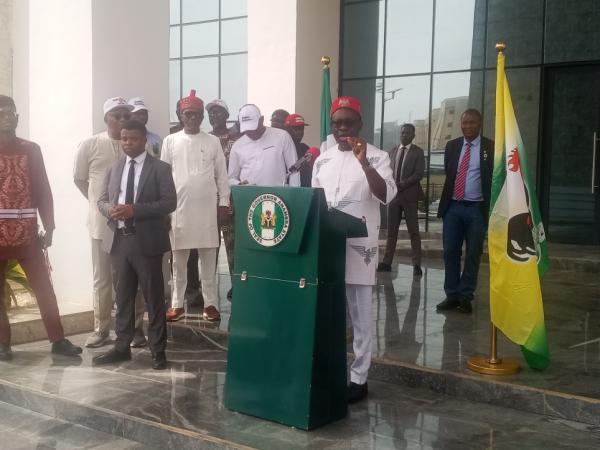
Manufacturers Association of Nigeria Export Group (MANEG)
FRIDAY 8th October: The Chairman, Manufacturers Association of Nigeria Export Group (MANEG), Ede Dafinone has called retaliatory tariffs illegal, stating that they went against agreements cemented in ECOWAS Trade Liberalisation Scheme (ETLS) agreement.
He took this stand on the sidelines of the 4th yearly meeting of the Group. He further stated that the tariffs also went against the implementation of the African Continental Free Trade Agreement (AfCFTA), adding that it was a way to escape from the responsibilities that came from the agreements signed.
Speaking further, he noted that the meeting which was themed “The implication of imposition and retaliatory tariffs and non-tariff barriers on trade within the ECOWAS sub-region" couldn't have come at a better time considering the recent imposition of full import duties on transit goods by the government of the Republic of Benin.
He also decried the constantly rising exchange rates, the high cost of energy in the country, multiple levels of taxes hindering export activities at the global market, stating that since the global pandemic, non-oil exporters have been practically struggling with reduced international demand coupled with domestic economic challenges.
Dafinone added that there were still complications in manufacturing operations from port congestion, unending Apapa gridlock, infrastructural deficiencies and smuggling.
He said that there are various complications in the ECOWAS sub-region, adding that the border closure disrupted trade significantly.
“We still have issues at the Nigeria-Benin border where the Benin government is charging exorbitant charges on goods that should be covered by the ETLS. For every day that the Benin Republic is charging this cost, Nigerian exporters are losing,” he said.
He went further to advice manufacturers to be tenacious in their activities to avoid being "flooded" by goods imported from India and China, stating the need to understand the threat posed by AfCFTA.






















